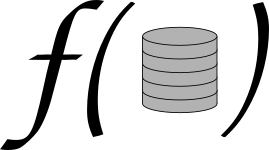PODS 2017: Invited speakers and accepted papers (1st round)
To get you all excited about the next edition of PODS and to invite you to make that edition even more interesting, I like to announce the following updates on PODS 2017:
First of all, we have some excellent invited speakers lined up:
- Keynote speaker: Susan Davidson
- PODS tutorial speakers: Lise Getoor, Dan Suciu.
Second, I am pleased to announce the results of the 1st submission cycle:
- Stable Model Semantics for Tuple-Generating Dependencies Revisited, Mario Alviano, Michael Morak and Andreas Pieris.
- Benchmarking the chase, Michael Benedikt, George Konstantinidis, Giansalvatore Mecca, Boris Motik, Paolo Papotti, Donatello Santoro and Efthymia Tsamoura.
- Answering Conjunctive Queries under Updates, Christoph Berkholz, Jens Keppeler and Nicole Schweikardt.
- The Complexity of Ontology-Based Data Access with OWL2QL and Bounded Treewidth Queries, Meghyn Bienvenu, Stanislav Kikot, Roman Kontchakov, Vladimir Podolskii, Vladislav Ryzhikov and Michael Zakharyaschev.
- Circuit Treewidth, Sentential Decision, and Query Compilation, Simone Bova and Stefan Szeider.
- BPTree: an L2 heavy hitters algorithm using constant memory, Vladimir Braverman, Stephen Chestnut, Nikita Ivkin, Jelani Nelson, Zhengyu Wang and David Woodruff.
- Private Incremental Regression, Shiva Kasiviswanathan, Kobbi Nissim and Hongxia Jin.
- Efficient and Provable Multi-Query Optimization, Tarun Kathuria and S Sudarshan.
- A Worst-Case Optimal Multi-Round Algorithm for Parallel Computation of Conjunctive Queries, Bas Ketsman and Dan Suciu.
- A Relational Framework for Classifier Engineering, Benny Kimelfeld and Christopher Re.
- How Fast can a Distributed Transaction Commit? Rachid Guerraoui and Jingjing Wang.
- On Asymptotic Cost of Triangle Listing in Random Graphs, Di Xiao, Yi Cui, Daren Cline and Dmitri Loguinov.
Finally, a reminder that abstracts for the 2nd submission cycle are due on December 11, 2016, paper submissions by December 18, 2016.
See CFP for more details on how to submit.
Looking forward to your submissions and seeing you in somewhere at some time 2017!
-Floris Geerts (PODS 2017 PC chair)

